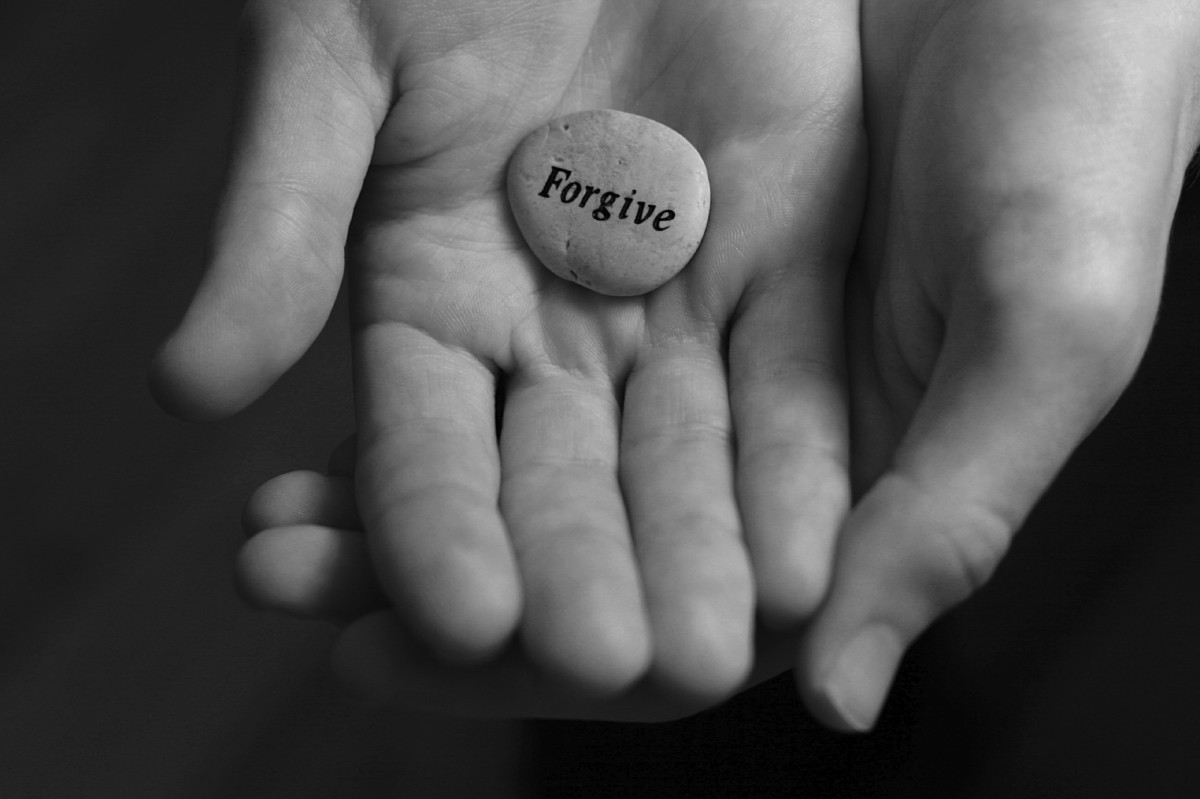It is Time for Americans to Stop Worrying and Envying What Other People Have-If You Want Affluence-Work for It!

Stop Worrying About Your Neighbors and the Fancy Things They Got
This hub is in response to a question asked by a brother hubber. This question is why are people so concerned and worried about what other people have? The brother hubber further added that if a person wants something, he/she should work for it and stop envying the more affluent of our society.
An answer to this question is pure and simple- jealousy, jealousy, jealousy to the multillionth degree. There are many people out there with a poverty and struggle consciousness mentality. These people are at a certain socioeconomic level in life and do not believe that other people should be better off than they are. It seems to be in this country, there is pressure to be The Average Joe/Josephina. Yes, average regarding socioeconomic status, looks, and intellect.
Overachievers are oftentimes denigrated and derided in this society. People have been inculcated with the premise that it is good and moral to struggle. God forbid that people are affluent and wealthy for this means that they are living "extravagantly" and not struggling socioeconomically as they are.
Many people associate being more successful and more affluent with avarice, decadence, and greed. In the eyes of these Average Joes/Josephinas, since it is hard for them to make ends meet, everyone, without exception, should do the same. They equate being affluent with being "corrupt" and "spoiled" although affluent people usually work harder and smarter than everyone else to succeed.
There are people who envy the affluent and wealthy among us because it is believed that the latter got there by avarice, and cunning, not because of honest work and strategizing their goals. Envy of the wealthier classes of people are at an all time high. This is so ridiculous. Such people would rather spend their energy complaining about what other people obtained, have, and the reasons therefore rather than access their own respective lives, doing what they should do to obtain a more socioeconomically affuent lifestyle.
The reasons why many people are not as successful as they would like to be is that they are risk aversive. Yes, many people are risk aversive, often loving to live within their own particular comfort zone. They would rather live in a purgatorial and/or hellish misery than to venture out of that zone to live their unique, individual dreams. It seems quite perplexing and strange that some people who have the least, are the one most worried about and envious of their more affluent family members, neighbors, associates, friends, relatives, and celebrities.
Such people oftentimes gossip about how "wasteful", "hedonistic", and "extravagant" the lives of their more affluent and wealtheir counterparts are. However, these same people subconsciously wish that they could live a better life socioeconomically with no struggle. It is quite obvious that socioeconomic struggle is extremely glorified and deified in this society.
There are people who seem to delight in people "who can stretch a dollar", "live cheaply", and "can do without". Simultaneously, the wealthier and more affluent among us are criticized because they can afford to go to nice restaurants, shop at nice stores, and do ot have to worry about living from hand to mouth. Such wealthy and affluent people are the masters of their own fate, instead of being mastered by it.
Many people just complain, bemoaning their precarious socioeconomic fate instead of assessing and analyzing their lives to see what mistakes they have made and to correct and learn from them. Of course, there are exceptions-people who have been terminated and/or downsized from their jobs through no fault of their own. Yes, these people should be assisted until they become independent again. This is understood quite implicity by all thinking people.
Such lost souls are not the topic of discussion. There are working people who odiously hate their jobs and their general socioeconomic predictament. However, they elect not to be proactive regarding improving their socioeconomic situation so to speak.
It has been said that many people in the lower rungs of the socioeconomic ladder have a mindset which is vastly different from the mindsets of those at the upper rungs of the socioeconomic ladder. The former are usually fatalistic and passive who believe that life circumstances are beyond their control. They usually accept what is handled out to them. They believe that some people are more successful because they are luckier than them i.e. whether it is family lineage, background, or better circumstances.
Poorer people further believe that the world is an unwelcoming place and that they cannot succeed because of "the man". They would rather blame outside circumstances than to take responsibility to make their lives better. You constantly hear them state that they are in the precarious socioeconomic circumstances they are in because " this is what have been dealt to them". They further inoculate this idea to their children and thus the cycle and the consciousness of struggle continues.
Poorer people refuse to acknowledge that they are the masters of their fate. They have been programmed to be recipients instead of being active participators in the game of life and success. Underachievement is de rigeur in such households. People with the stuggling and poverty consciousness have a mindset of constant misery and want. A more socioeconomically affluent and wealtlhier person is often beyond this person's purview and understanding. Poorer people just cannot fathom that there are people who strategize and work smart to achieve these dreams.
More affluent and wealthier people are viewed as " high and mighty" and "less authentic" by poorer people. The former are often derided by poorer people. This derision is analagous to the derision that low achieving students give to their higher achieving counterparts. In many poorer neighborhoods, people who are more ambitious are told to "stay in their place" and/or "to stop having these lothy goals". More ambitious members of poorer community are often told to "get real" or "not to sell out". Many highly intelligent and gifted poorer children are often bullied by their peers and sometimes their relatives when they express the desire to better their socioeconomic conditions by focusing on their education.
The phenonema for this is called the crab in the barrel mentality. This is when people in a precarious and/or disadvantaged situation do not want others in the same situation to succeed and better themselves. If the latter chooses to better his/her situation, the former employes a methodology to the latter in "his/her place".
Because the average poorer person is struggling, he/she often view education, especially higher education, is an utter waste of time. He/she elect not to view education as a pathway to a more socioeconomically secure lifestyle. He/she is busy living from day to day.
Many sociologists, psychologists, social scientists, and business theorists maintain that poorer person have day-to-day vision. This means that they view life only for its immediate results as they do not have the purview to conceptualize long term goals. They can see immediate gratification for their efforts and deem delayed gratification to be pointless.
More affluent and wealtheir people have an entirely different mindset. They believe that they MAKE their own destiny. They are long term strategizers and planners for their future. They believe in taking advantage of every opportunity available to realize their ultimate goals.
They are practioners in the art of delayed gratification. For example, a wealthier person may want a car; however, his/her children will be attending college next year. So, the wealthier person decides that the car can last for another five years and that his/her children's college education is more important and beneficial in the long run.
More affluent and wealthier intelligently prioritize their lives. They know what is important from what is just frivolous and have no long term gain. They know how to plan for the future which is something that poorer people elect not to do. More affluent and wealthier people have a prosperity consciousness. They believe that they are deserving of what life has to offer and will not settle for second best. They are, in fact, self-actualized people who in turn impart the same philosophy to their children. They believe that success is earned and not a product of luck.
In summation, the more affluent and wealthy among us are envied because there is a deification and glorification of the culture of being poorer and struggling. Having money is still subsconsciously viewed as evil in our society. The less affluent and struggling person is adored while the more affluent and wealthy are derided.
This underlying philosophy is why many people are obsessively concerned and worried about what, how and why regarding the possessions and lifestyles of their more affluent and wealthier relatives, friends, neighbors, and associates. Many people would rather commiserate about their precarious socioeconomic conditions and " the decadent extravagant. wasteful, and hedonistic" life of their more prosperous counterparts than actually accessing their own lives, taking responsibility for it and correcting it.
Books to Read on the Subject
© 2011 Grace Marguerite Williams










